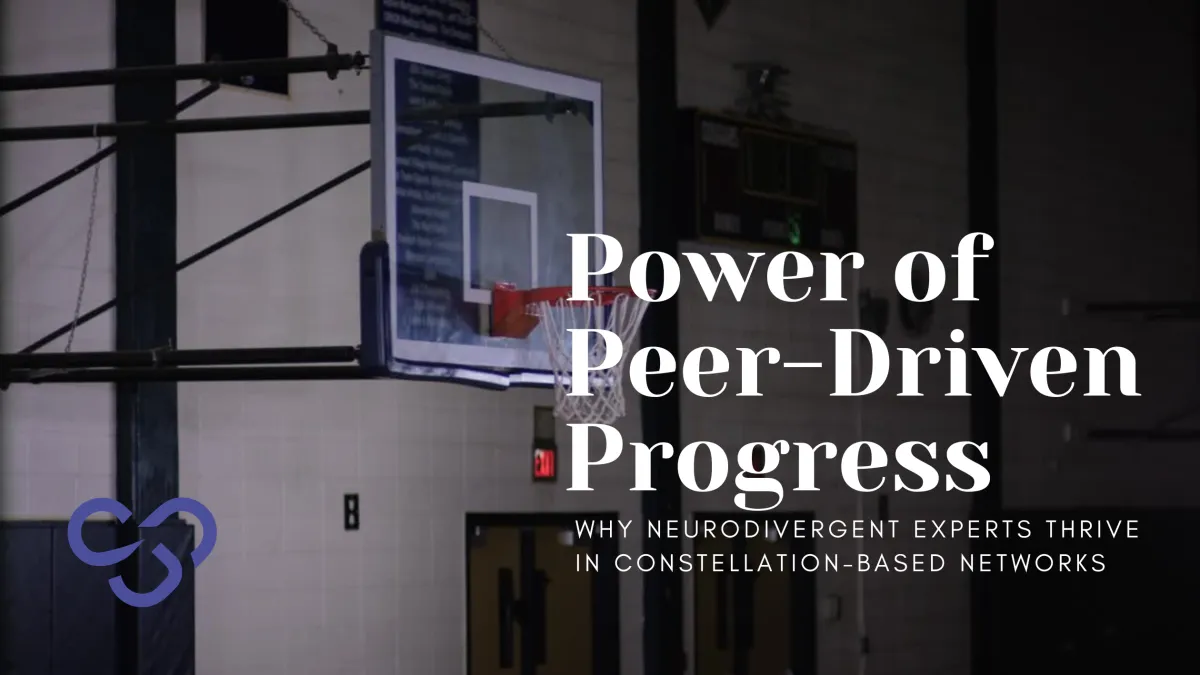
The Power of Peer-Driven Progress
Why neurodivergent experts thrive in constellation-based networks
Traditional networking often feels like navigating a minefield for neurodivergent professionals.
The unspoken rules, surface-level small talk, and performative connections that dominate LinkedIn and industry events can be overwhelming for ADHD coaches, autistic consultants, and other ND experts who prefer authentic, purpose-driven relationships.
What if networking could be different?
What if instead of forcing yourself into neurotypical networking molds, you could connect in ways that honour your natural communication style and professional strengths?
Enter constellation-based networking, a revolutionary approach that's transforming how neurodivergent professionals build meaningful business relationships and accelerate their impact.

What Makes Constellation-Based Networks Different
Unlike traditional hierarchical or broad-spectrum networking platforms, constellation-based networks organise around shared interests, complementary skills, and collaborative projects.
Think of it as creating your own professional solar system where you're connected to others not by proximity or industry labels, but by genuine alignment and mutual value.
For neurodivergent professionals, this model offers several elegant advantages:
Depth Over Breadth: Instead of collecting hundreds of superficial connections, you build meaningful relationships with professionals who share your values and complement your expertise.
This resonates perfectly with the ND preference for deep, authentic connections over surface-level networking.
Project-Based Collaboration: Rather than generic "let's grab coffee" interactions, connections form around specific projects, skills, and outcomes.
This gives neurodivergent professionals the structure and clear purpose that makes networking feel natural rather than forced.
Asynchronous Communication: Many ND professionals struggle with real-time networking demands.
Constellation networks allow for thoughtful, asynchronous relationship building that honors different communication styles and processing speeds.

The Neurodivergent Advantage in Peer Networks
Neurodivergent professionals bring unique strengths to collaborative networks that are often undervalued in traditional business settings.
In peer-driven environments, these differences become superpowers:
Systems Thinking: Many neurodivergent professionals excel at seeing patterns and connections others miss.
In constellation networks, this translates to identifying collaboration opportunities and resource gaps that create value for entire peer groups.
Hyperfocus and Deep Expertise: The ability to dive deep into areas of interest creates genuine expertise that peers actively seek out.
Instead of being seen as "too intense," your specialised knowledge becomes a cornerstone that others naturally gravitate toward.
Authentic Communication: The ND tendency toward direct, honest communication builds trust faster in peer networks where authenticity is valued over corporate polish.
Innovation Through Different Perspectives: Neurodivergent professionals often approach problems from unique angles, leading to breakthrough solutions that benefit entire collaborative networks.

Safe Networking Spaces for Autistic Coaches and ND Professionals
Creating safe networking spaces for neurodivergent people requires intentional design around sensory considerations, communication preferences, and social energy management.
The most effective neurodivergent-affirming community platforms incorporate:
Predictable Structures: Clear expectations about interaction formats, timing, and outcomes reduce social anxiety and allow ND professionals to engage authentically.
Multiple Communication Channels: Some thrive in video calls, others prefer written communication, and many need both depending on their current capacity. Effective platforms accommodate all preferences.
Energy-Conscious Design: Recognition that social interaction requires significant energy for many ND individuals, with built-in breaks, optional participation levels, and respect for boundaries.
Trauma-Informed Networking: Understanding that many neurodivergent professionals have experienced workplace trauma or rejection, requiring extra care in creating psychologically safe connection spaces.

How to Automate Your Consulting Business as a Neurodivergent Professional
One of the biggest challenges for ND consultants and coaches is managing the administrative overhead that comes with client relationships and business development.
The executive function demands of traditional CRM systems often clash with neurodivergent working styles.
This is where ND-first business automation becomes game-changing.
Unlike generic automation tools, neurodivergent-friendly systems are designed around how ND brains actually work:
Visual Workflow Management: Clear, visual representations of client journeys and project stages that align with how many neurodivergent professionals naturally organise information.
Sensory-Friendly Interfaces: Platforms that allow customization of colors, sounds, and visual elements to prevent sensory overload during daily use.
Flexible Scheduling Systems: Automation that works with variable energy levels and hyperfocus cycles rather than rigid time blocks.
Integration-Heavy Approaches: Since many ND professionals use multiple specialised tools, effective automation seamlessly connects different platforms rather than forcing everything into one system.
The key is finding or creating systems that amplify your natural strengths while compensating for executive function challenges, rather than requiring you to adapt to neurotypical business processes.

Finding Collaborators by Project and Skillset
Traditional networking often starts with credentials and ends with vague promises to "stay in touch."
Constellation-based networks flip this model by starting with specific needs and capabilities.
For neurodivergent professionals, this project-focused approach offers several advantages:
Clear Collaboration Criteria: Instead of wondering whether someone might be a good connection, you can identify exactly how your skills complement others and vice versa.
Reduced Social Guesswork: The parameters for collaboration are explicit, eliminating much of the social navigation that can be exhausting for ND professionals.
Natural Relationship Building: Working together on projects creates organic relationship development without the pressure of forced networking activities.
Skill-Based Matching: Your unique expertise becomes the foundation for connections rather than your ability to make small talk or navigate social hierarchies.

Gamified Networking for Neurodivergent People
Many neurodivergent individuals respond well to gamification elements that provide clear progress indicators and achievement recognition.
When applied thoughtfully to networking, gamification can make relationship building more engaging and less overwhelming.
Effective gamified networking for ND professionals includes:
Progress Tracking: Visual indicators of relationship development, collaboration milestones, and community contributions that satisfy the need for clear achievement markers.
Skill Badges and Recognition: Systems that acknowledge and celebrate the deep expertise that neurodivergent professionals often develop in their areas of interest.
Challenge-Based Engagement: Optional networking challenges that provide structure and motivation without being mandatory or competitive in harmful ways.
Collaborative Achievements: Recognition systems that celebrate group accomplishments and mutual support rather than individual competition.

The Future of Neurodivergent Professional Networks
As awareness of neurodiversity grows, we're seeing a shift toward more tokenistic inclusive professional environments.
The most effective neurodivergent-affirming community platforms are those that accommodate differences and actively leverage them for collective benefit.
The constellation model represents a fundamental reimagining of professional networking, one where neurodivergent professionals aren't trying to fit into existing systems but are creating new models that work better for everyone involved.
For coaches, consultants, therapists, and other service-based professionals, this shift opens up entirely new possibilities for building practices that align with both your neurodivergent traits and your professional goals.

Getting Started with Constellation Networking
If you're ready to explore peer-driven networking that honors your neurodivergent traits:
Start Small: Begin with one or two meaningful connections rather than trying to build a large network quickly.
Lead with Your Strengths: Share your expertise and unique perspectives rather than trying to be everything to everyone.
Set Clear Boundaries: Communicate your availability, preferred communication methods, and collaboration preferences upfront.
Seek Project-Based Opportunities: Look for specific ways to contribute to others' work while building relationships naturally.
Choose ND-Affirming Spaces: Prioritise platforms and communities that explicitly welcome and celebrate neurodivergent professionals.
The power of peer-driven progress lies not in forcing yourself to network like everyone else, but in creating and participating in networks that amplify your natural strengths while providing the support and collaboration you need to thrive.
Your neurodivergent traits aren't obstacles to overcome in professional networking, they're the foundation for building more authentic, effective, and mutually beneficial professional relationships.


